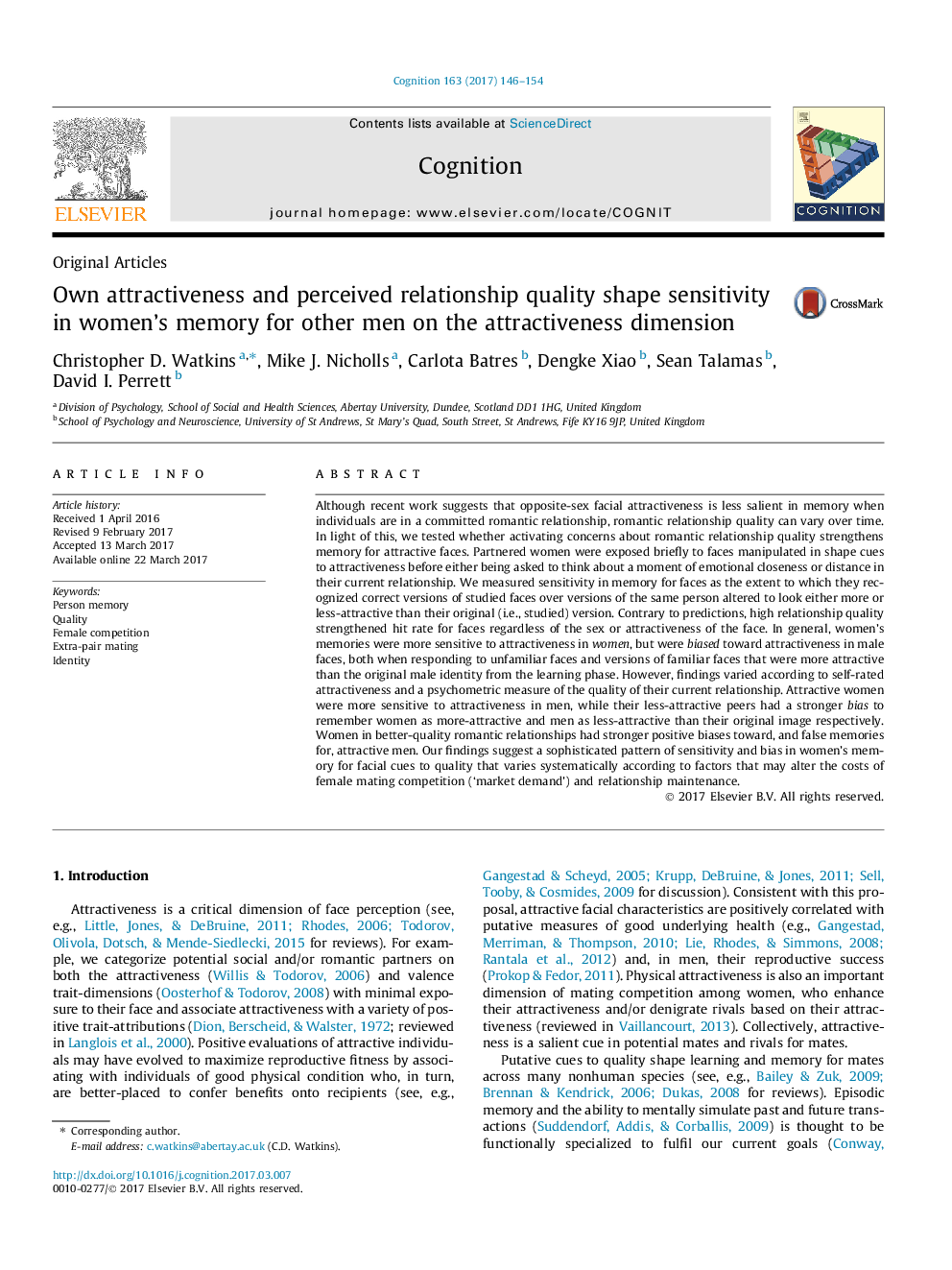| Article ID | Journal | Published Year | Pages | File Type |
|---|---|---|---|---|
| 5041590 | Cognition | 2017 | 9 Pages |
Although recent work suggests that opposite-sex facial attractiveness is less salient in memory when individuals are in a committed romantic relationship, romantic relationship quality can vary over time. In light of this, we tested whether activating concerns about romantic relationship quality strengthens memory for attractive faces. Partnered women were exposed briefly to faces manipulated in shape cues to attractiveness before either being asked to think about a moment of emotional closeness or distance in their current relationship. We measured sensitivity in memory for faces as the extent to which they recognized correct versions of studied faces over versions of the same person altered to look either more or less-attractive than their original (i.e., studied) version. Contrary to predictions, high relationship quality strengthened hit rate for faces regardless of the sex or attractiveness of the face. In general, women's memories were more sensitive to attractiveness in women, but were biased toward attractiveness in male faces, both when responding to unfamiliar faces and versions of familiar faces that were more attractive than the original male identity from the learning phase. However, findings varied according to self-rated attractiveness and a psychometric measure of the quality of their current relationship. Attractive women were more sensitive to attractiveness in men, while their less-attractive peers had a stronger bias to remember women as more-attractive and men as less-attractive than their original image respectively. Women in better-quality romantic relationships had stronger positive biases toward, and false memories for, attractive men. Our findings suggest a sophisticated pattern of sensitivity and bias in women's memory for facial cues to quality that varies systematically according to factors that may alter the costs of female mating competition ('market demand') and relationship maintenance.
